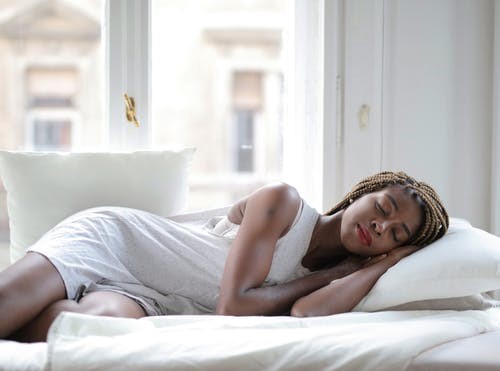
Is there a connection between sleepbuds and tinnitus? Tinnitus sufferers often lament that the ringing in their ears keeps them awake at night. Add that to other sleep disorders like insomnia, restless leg syndrome, or sleep apnea, and heading to bed each night can be a nightmare.
Astonishingly, the Centers for Disease Control and Prevention estimate that 70 million people in America alone experience chronic sleep problems. And, that doesn’t even count the rest of the world! It’s obvious that difficulty sleeping is a common problem, but is there a solution? We can’t speak for all sleep disorders, but for those with tinnitus, there may be a few options that can help.
Sleepbuds and Tinnitus
A few years ago, Bose, a leader in innovative sound technology, released their new Sleepbuds. They were originally touted by the company as a solution for people who had difficulty falling or staying asleep. Individual users, however, also found them helpful for combatting the negative effects of tinnitus on their sleep quality.
Sleepbuds paired to a cell phone app via Bluetooth. Then, the user could select their choice of soundtrack as well as how long to listen. Unlike earbuds that play music, Sleepbuds were designed to play sounds that would mask other noises or promote relaxation. These included sounds like waves on a beach or a rain shower. For individuals with tinnitus, these noises often masked the ringing in their ears, making it easier to fall and stay asleep.
These particular sleep aids have since been discontinued by Bose. While they may still be available for purchase from other online sites, it is worth it to look at other alternatives.
Tinnitus treatment options
Unfortunately, there is no cure for tinnitus. However, there are several helpful tinnitus treatment options in addition to sound masking devices like the Bose Sleepbuds mentioned above. Some of the most common include:
- Hearing Aids – Tinnitus is often a symptom of hearing loss. So, wearing appropriate hearing aids may lessen the symptoms.
- Customized Sound Machines – Noise masking devices are not personalized and typically provide relief only when you are wearing them. In contrast, custom sound machines are designed specifically for the frequency of your tinnitus symptoms. They are worn intermittently and the benefits can be experienced even after the device is turned off.
- Behavioral Therapy – Does your tinnitus make you feel like you’re going crazy? You’re not alone. Many tinnitus sufferers also have high stress, anxiety, or depression. Behavioral therapy helps you learn how to cope and live with your condition.
- Medication – Again, this is not a cure, but rather a way to deal with tinnitus symptoms. Every individual case is different, but doctors often treat tinnitus with multiple approaches. Antianxiety or antidepressant drugs may be used in addition to the other treatments listed above. For more information about tinnitus drug therapy, check out the resources provided by the American Tinnitus Association.
- Treating the Cause – Sometimes, the actual cause of tinnitus can be determined and treated. For example, excessive ear wax, a problem with the temporomandibular joint (TMJ), or an irritation of the auditory system can cause tinnitus. Simply fixing these problems may cause the tinnitus symptoms to disappear.
Tinnitus treatment is only a phone call away
Whatever the cause, and no matter how crippling the symptoms may be, there is someplace you can go for help. If you have tinnitus symptoms or any other hearing difficulty, schedule an appointment with your audiologist or hearing healthcare professional as soon as possible. A thorough evaluation is needed for proper diagnosis and determination of appropriate treatment options.

